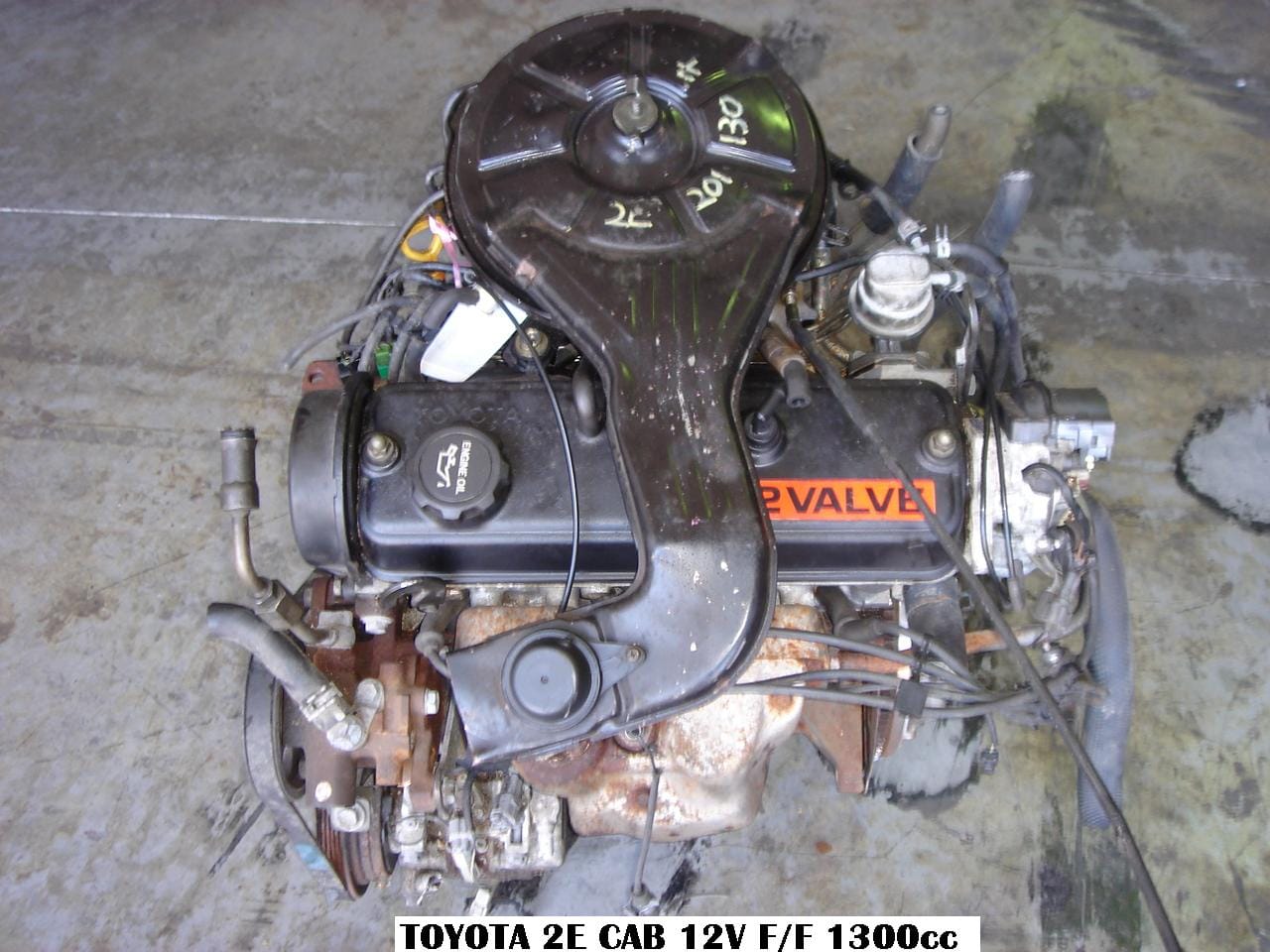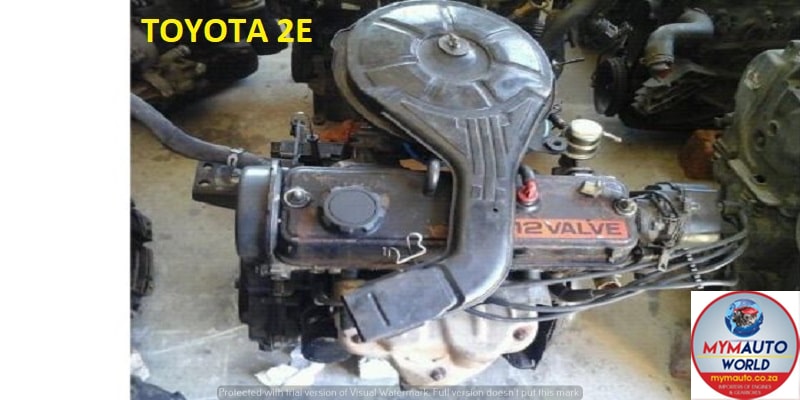Open Efficiency: Toyota Tazz Engine for Sale at Affordable Prices
Open Efficiency: Toyota Tazz Engine for Sale at Affordable Prices
Blog Article
Smart Customer's List: Secret Features to Examine in Engines Prior To Making an Acquisition
When thinking about buying an engine, there are several crucial functions that a discerning purchaser must assess to ensure they are making a well-informed choice. From the type of engine to its performance metrics, gas effectiveness, upkeep, and longevity prices, each facet plays an important duty in figuring out the engine's viability for the intended objective. By carefully examining these aspects, purchasers can purchase that not only fulfills their current needs however likewise verifies to be a wise long-term investment.
Engine Kind Assessment

When evaluating engine types for an acquisition, it is vital to take into consideration the details requirements of the designated application. Different engines are designed with varying features and abilities to fit a variety of requirements. Understanding the main objective for which the engine will be utilized is necessary in making a notified decision.
For applications requiring high power outcome, such as heavy-duty commercial equipment or huge automobiles, diesel engines are often favored due to their performance and torque abilities. On the various other hand, gas engines are typically chosen for smaller tools, vehicles, and power tools where lighter weight and higher RPM performance are advantageous.
Additionally, the environment in which the engine will operate must be thought about (Toyota Tazz Engine For Sale). Variables such as altitude, temperature, and air high quality can impact the engine's performance and longevity. Choosing an engine kind that is ideal for the details operating conditions will certainly aid make certain optimum effectiveness and toughness
Efficiency Metrics Analysis

Fuel Efficiency Examination
Assessing fuel performance is a critical variable in determining the operational cost-effectiveness and ecological impact of an engine. Gas performance refers to the amount of power an engine can draw out from a certain quantity of gas. It directly impacts the general operating costs of the engine, making it an essential factor to consider for purchasers aiming to optimize their lasting costs.
When assessing fuel performance, it is essential to think about metrics such as miles per gallon (MPG) or liters per 100 kilometers (L/100km) depending upon the area. These metrics give a clear indication of how far a lorry can take a trip on an unit of gas, enabling purchasers to estimate fuel expenses precisely. Furthermore, innovations like hybrid systems, turbocharging, and direct fuel shot can significantly impact fuel efficiency by improving combustion efficiency and lowering power losses.

Toughness and Reliability Inspect
Considering the substantial effect of fuel efficiency on functional costs and environmental sustainability, the next crucial facet to evaluate in engine acquisition is the resilience and reliability of the engine. Toughness refers to the engine's ability More Info to stand up to wear, rust, and stress over a prolonged duration, guaranteeing a much longer life-span. Reliability, on the various other hand, refers to the engine's consistency in efficiency under numerous conditions without unforeseen breakdowns or failings.
To analyze the durability and integrity of an engine, a number of factors need consideration. Initially, examining the engine's building and construction products and layout can provide insight into its toughness click over here and resistance to put on. Additionally, reviewing historical data on the engine model's efficiency, maintenance requirements, and typical concerns reported by customers can aid determine its dependability.
In addition, accreditations from trusted companies, service warranty offerings, and maker track record for generating trustworthy engines are important indications of toughness and reliability. Carrying out extensive research, looking for suggestions, and evaluating maintenance documents can assist in making an informed decision on acquiring an engine recognized for its long life and dependable performance.
Expense and Maintenance Considerations
When pondering engine purchase choices, a crucial aspect to dig right into is the monetary ramifications coupled with maintenance factors to consider. The cost of an engine extends past the preliminary acquisition price. It is essential to analyze elements such as fuel effectiveness, ongoing maintenance expenses, and the availability of spare parts. Going with a fuel-efficient engine may cause lasting price financial savings despite a possibly higher in advance rate. In addition, evaluating the maintenance demands of different engine designs is important. Some engines might necessitate constant servicing or specialized treatment, causing enhanced upkeep costs with time. Taking into consideration the availability and cost of spare components is additionally critical. Engines with easily easily accessible and moderately priced extra parts can dramatically decrease upkeep expenses and downtime. Focusing on cost-effectiveness and ease of maintenance can cause a more sustainable and affordable engine investment over time.
Conclusion
Finally, it why not find out more is vital for customers to extensively assess essential functions in engines prior to making a purchase. By thinking about the engine kind, performance metrics, gas efficiency, sturdiness, expense, maintenance, and integrity demands, customers can make an enlightened decision that meets their expectations and requirements. This extensive evaluation process makes certain that purchasers pick an engine that will certainly supply optimal performance and durability for their meant usage.
From the type of engine to its efficiency metrics, gas efficiency, resilience, and maintenance prices, each aspect plays a crucial role in figuring out the engine's suitability for the intended objective. Fuel effectiveness is a crucial efficiency statistics, highlighting how efficiently the engine converts gas right into useful energy - Toyota Tazz Engine For Sale. Fuel effectiveness refers to the quantity of energy an engine can remove from a certain amount of gas.Considering the significant effect of fuel effectiveness on functional costs and ecological sustainability, the following important element to evaluate in engine acquisition is the longevity and dependability of the engine. By thinking about the engine type, efficiency metrics, gas efficiency, sturdiness, maintenance, cost, and reliability demands, buyers can make an enlightened decision that satisfies their assumptions and requirements
Report this page